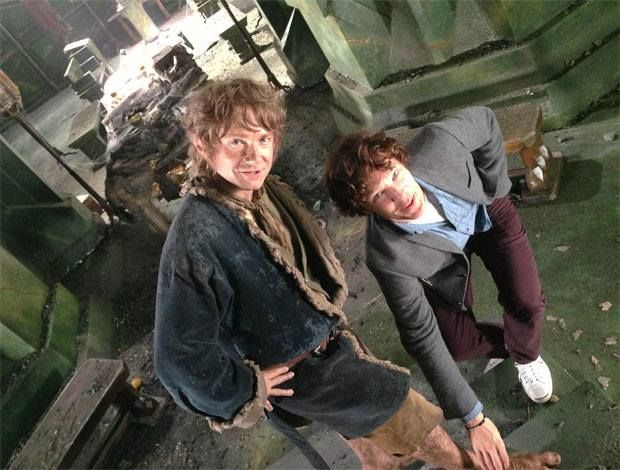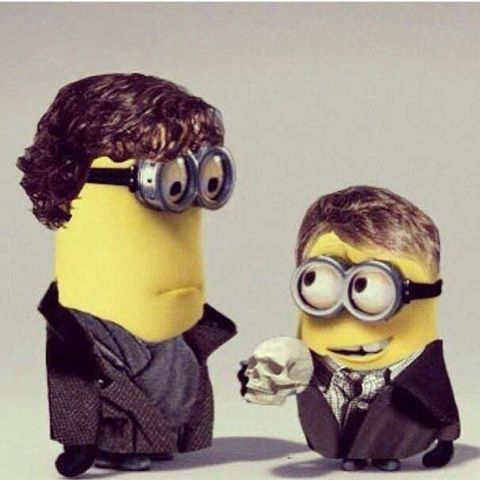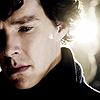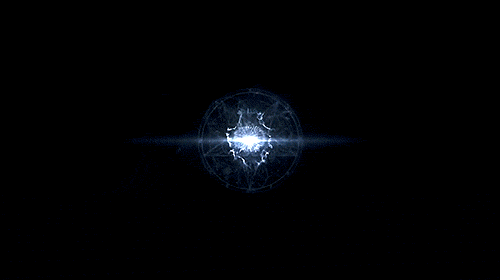
BBC Sherlock Fan Forum - Serving Sherlockians since February 2012.
- Harriet
- Most Human Human Being
 Offline
Offline 
- From: 110A Piccadilly
- Registered: August 24, 2012
- Posts: 9,887
Re: "We're not a couple" and homophobic accusations
And Mofftiss could have dealt with the story in a similar thoughtful way but decided against it.
Eventually everyone will support Johnlock. Independent OSAJ Affiliate
... but there may be some new players now. It’s okay. The East Wind takes us all in the end.
- josabby
- Cipher Expert
 Offline
Offline 
- From: USA (Ohio)
- Registered: March 19, 2013
- Posts: 167
Re: "We're not a couple" and homophobic accusations
I actually like Sally. She has an antogonistic relationship with Sherlock, as do most of the police other than Lestrade, but other than that, I find her kind of likeable and cool, and the antagonistic relationship with Sherlock is two way. I just don't get what she sees in Anderson. eck!
I don't think Moffit is sexist. He seems to have a pretty egalitarian relationship with his wife.
--------------------------------------------------------------------------
"Once you eliminate the impossible, whatever remains, no matter how improbable, must be the truth."
Whoa. Sherlock was quoting Spock who was quoting Sherlock....Mind blown!!

- •
- the_dancing_woman
- British Government
 Offline
Offline 
- From: King's Cross
- Registered: June 28, 2013
- Posts: 616
Re: "We're not a couple" and homophobic accusations
SusiGo wrote:
I would like to mention one point - this is after all based on ACD's Canon that has been adapted to life in our present time, the early 21st century. Therefore we have strong professional women among which I count Molly as well as Donovan or Irene, each one in their own way. And Mrs Hudson who has survived a potentially abusive and/or criminal husband. We have people from various ethnic backgrounds, we have gay people including Mrs Turner's married ones. To me all these facts show that Sherlock Holmes has arrived in our present time.
But - it should still be Sherlock Holmes. Would it be really still canon if they tried to get as politically correct as incorporating every minority and/or social group in an appropriate way? Wouldn't it feel artificial or overconscentious?
I agree with the post above. In the end it still is Sherlock Holmes, which was originally written in the Victorian Era, some adaptions have been made to bring the story up to date and fit it into a modern context, but underneath it all this isn't a story about adhering to all models of policitical correctness because it simply isn't possible, but Sherlock Holmes and his outstanding cases or adventures.
And you could start right there by realising that Sherlock himself is not a great friend of humankind in general and definitely doesn't have much sense of uhm, basically anything when it comes to treating people. With this I just would like to state, one could start getting worked up about it right there.
In the end it's a television show (derived from a beautiful piece of literature) and it's supposed to entertain people in a rather unique fashion, it simply can't stand up to the task of being representative of everything and everyone.
The "I am not gay" thing is a joke, a running gag they brought in, I am certain it was never intended to offend anyone, just as Irene Adler wasn't supposed to be a stereotype, representing gay women in general. I never perceived her as such, I never even really cared if she was gay or not, I just thought she was a great character!
I think and hope we are slowly but surely getting to a place where it just doesn't matter anymore in a story if someone is gay or straight, since both is just how people are and should thus be seen as equally normal (which it is).
About the Moffat issue: I think he is neither mysogynistic nor homophobe nor any of the other things he is generally being accused of. Girls, boys: Sherlock is being produced by two women Sue and Beryl Vertue, they are the big bosses behind it all! He is close friends with Mark Gatiss, who is homosexual, so I don't know where the homophobia idea comes from, I really don't get it.
I am a woman and I am perfectly okay with the female characters in Sherlock and I can't wait to see Mary become part of the show (which by the way quite a number of women are opposed to because of Johnlock, and then there are those who say there aren't enough women on the show, you see, you just can't make everyone happy at once![]() )
)
I perfectly understand that people feel the need to discuss those things, but always keep in mind this is just one particular story out of many to be told, again it is impossible to fulfill everyone's expectations as to how things should be.
------------------------------------------------------------------
"When you walk with Sherlock Holmes, you see the battlefield" M.H.
"My brother has the brain of scientist or a philosopher, and yet he elects to be a detective...what might we deduce about his heart?" M.H.
"Home is now behind you, the world is ahead."
- kittykat
- Reichenbach Survivor
 Offline
Offline 
- From: England
- Registered: June 17, 2013
- Posts: 4,740
Re: "We're not a couple" and homophobic accusations
I'm a Johnlock fan but still looking forward to Mary. It'll be sweet to see Amanda and Martin together on screen!![]()
-----------------------------------------------------------------------------
Dean - "I'm not happy about it. But I got to move on. So I'm gonna keep doing what we do...while I still can. And I'd like you to be there with me."
Sam - "I'm your brother, Dean, if you ever need to talk about anything with anybody, you got someone right here next to you."

- Harriet
- Most Human Human Being
 Offline
Offline 
- From: 110A Piccadilly
- Registered: August 24, 2012
- Posts: 9,887
Re: "We're not a couple" and homophobic accusations
the_dancing_woman wrote:
In the end it's a television show (derived from a beautiful piece of literature) and it's supposed to entertain people in a rather unique fashion, it simply can't stand up to the task of being representative of everything and everyone.
Agree, only it's more or less always the same people whose interests are being excluded.
Why should always the same people say: "Ah, ok, we understand we can't be served this time because you can't serve everything and everyone?"
Plus, here was a good example for a better way of dealing with things. I'd like to add Six Feet Under.
Last edited by Harriet (August 7, 2013 5:00 pm)
Eventually everyone will support Johnlock. Independent OSAJ Affiliate
... but there may be some new players now. It’s okay. The East Wind takes us all in the end.
- the_dancing_woman
- British Government
 Offline
Offline 
- From: King's Cross
- Registered: June 28, 2013
- Posts: 616
Re: "We're not a couple" and homophobic accusations
I get what you mean in general and I am all for telling everyone's story and I think we are getting to a point where it is happening (I am well aware that a lot of work is still to be done on this), it just can't always be done within the concept of one particular show.
As you've said yourself in your post above there are other series who tell different stories and where including everything might even work, and why not.
But as I stated earlier in my post, Sherlock Holmes is still Sherlock Holmes in the end, derived from a very specific original source and at least partly staying true to it.
I just can say, I as a woman don't feel excluded or miss- or underrepresented. And this series certainly has not given me a negative view of any kind of minority. I don't even see them as excluded from it, all kinds of people from all kinds of backgrounds have appeared in it so far and will continue to do so.
Last edited by the_dancing_woman (August 7, 2013 5:12 pm)
------------------------------------------------------------------
"When you walk with Sherlock Holmes, you see the battlefield" M.H.
"My brother has the brain of scientist or a philosopher, and yet he elects to be a detective...what might we deduce about his heart?" M.H.
"Home is now behind you, the world is ahead."
- josabby
- Cipher Expert
 Offline
Offline 
- From: USA (Ohio)
- Registered: March 19, 2013
- Posts: 167
Re: "We're not a couple" and homophobic accusations
Swanpride wrote:
And I agree with SusiGo: It would feel aritificial. That's one of my issues with Elementary, the show made their Watson a big selling point, and the question if the show is really THAT political correct aside (I actually think it's worse than Sherlock in portraying woman, especially Asian woman), I think it does nothing for the show overall. The moment you make a character "black", "female" or "gay" instead of creating a character which for some reason or another ends up being either of those things, the result is always very forced. To go back to my example with Diana Barrigan: I think the character ended up being lesbian, because the creators of White Collar thought that it would be fun to confront their womanizing con-man with an attractive female he can't sway for sure, and not because they wanted a lesbian in the show no matter what. And I think she ended up being triple minority (female, dark-skinned and lesbian) because they simply liked the actress (enough to fetch her back after she wasn't available for the first season). That's the thougth which should be put into every character, what do I want to do with it and who should play it. It should never be about meeting some sort of quota.
I agree with Swanpride 100%, and I recommend a blog she wrote on the subject which is one of the best essays on Sherlock vs Elementary I've seen.
When characters are male/white/ and hetrosexual, those are not the first things people notice or remember about them. It shouldn't be the first or only things we remember about characters that are female/ homosexual/not caucasian, ect. If that is the only thing we remember or notice about characters, then it is not a step in the right direction.
Characters should be organic, not contrived. When they are put in just for the sake of showing diversity, but the characters are one-dimensional, it's a patronizing ploy to sell an audience to advertizers that sell products made by cheap labor (in countries wher workers have no rights, yep real progress there).
JK Rowling created a lot of great characters. Dumbledore was gay, but it was only hinted at in the books, but there are countless essays discussing the multiple aspects of Dumbledore. He is a fully fleshed out character who happened to be gay. And there's Kingley Shacklebolt. He happens to be black, but he has a very distinct presence on the page that has nothing to do with the color of his skin. And he became the Minister of Magic who got rid on the corruption.
Even minor characters like Parvati Patil and Dean Thomas are fully fleshed out and relevant when on the page.
Harry Potter himeself is a white male, hetrosexual, as is Ron Weasley. Is the first or only thing that we think about when remembering them as characters their skin color, gender or sexual orientation? Nope. Same goes for Sherlock, John, Moriarty and Lestrade, Why should that be the case for a character like Joan Watson or Mrs Hudson on Elementary or Irene/Moriarty? Characters should be fully developed and not just tokens.
Last edited by josabby (August 7, 2013 5:36 pm)
--------------------------------------------------------------------------
"Once you eliminate the impossible, whatever remains, no matter how improbable, must be the truth."
Whoa. Sherlock was quoting Spock who was quoting Sherlock....Mind blown!!

- •
- josabby
- Cipher Expert
 Offline
Offline 
- From: USA (Ohio)
- Registered: March 19, 2013
- Posts: 167
Re: "We're not a couple" and homophobic accusations
the_dancing_woman wrote:
I get what you mean in general and I am all for telling everyone's story and I think we are getting to a point where it is happening (I am well aware that a lot of work is still to be done on this), it just can't always be done within the concept of one particular show.
As you've said yourself in your post above there are other series who tell different stories and where including everything might even work, and why not.
But as I stated earlier in my post, Sherlock Holmes is still Sherlock Holmes in the end, derived from a very specific original source and at least partly staying true to it.
I just can say, I as a woman don't feel excluded or miss- or underrepresented. And this series certainly has not given me a negative view of any kind of minority. I don't even see them as excluded from it, all kinds of people from all kinds of backgrounds have appeared in it so far and will continue to do so.
Amen! As a woman, I like plenty of male ficticious characters and my affection for those characters is not complety hormonal: Sherlock, Harry Potter, Bilbo Baggins, Han Solo, Steve Rogers, ect. I don't feel left out. I relate to fully developed female characters like the ones found in Joss Whedon shows, The Hunger Games, Bridesmaids, Sherlock (Molly, Irene, Mrs Hudson, Sally, John's therapist (who showed more personality in her two scenes than Joan Watson has shown in an entire season of Elementary).) Dr. Who (Donna, Martha, Rose), Once Upon a Time, and the various Star Trek series
I want to see strong women, but they are more relatable when someone is trying to TELL me a story rather than someone trying to patronize me and SELL me a story.
--------------------------------------------------------------------------
"Once you eliminate the impossible, whatever remains, no matter how improbable, must be the truth."
Whoa. Sherlock was quoting Spock who was quoting Sherlock....Mind blown!!

- •
- Jonquille
- The Game Is On
 Offline
Offline 
- From: France
- Registered: July 23, 2013
- Posts: 78
Re: "We're not a couple" and homophobic accusations
I've just discovered the discussion and my feeling is that some people are making an issue of nothing, because I really don't feel that people from any specific group are being undermined in the show.
__________________________________
Alone is what I have. Alone protects me.
 Not a fan.
Not a fan.- Harriet
- Most Human Human Being
 Offline
Offline 
- From: 110A Piccadilly
- Registered: August 24, 2012
- Posts: 9,887
Re: "We're not a couple" and homophobic accusations
Uhm, you know that Oscar Wilde was also very devoted to his wife and his children?
As well as Harold Nicholson to his wife? (They were both gay and had children together.)
So much for really not gay ![]()
Eventually everyone will support Johnlock. Independent OSAJ Affiliate
... but there may be some new players now. It’s okay. The East Wind takes us all in the end.
- SusiGo
- The game is never over (moderator)
 Offline
Offline 
- From: Germany
- Registered: June 5, 2012
- Posts: 22,969
Re: "We're not a couple" and homophobic accusations
It is after all a fact that ACD himself did not seem very interested in the John/Mary relationship. He could have gone on writing stories with a married Watson after Holmes returned to London but he chose not to. It seems he preferred their bachelor arrangement and deliberately wrote her out of the stories.
------------------------------
"To fake the death of one sibling may be regarded as a misfortune; to fake the death of both looks like carelessness." Oscar Wilde about Mycroft Holmes
"It is what it is says love." (Erich Fried)
“Enjoy the journey of life and not just the endgame. I’m also a great believer in treating others as you would like to be treated.” (Benedict Cumberbatch)

- josabby
- Cipher Expert
 Offline
Offline 
- From: USA (Ohio)
- Registered: March 19, 2013
- Posts: 167
Re: "We're not a couple" and homophobic accusations
--------------------------------------------------------------------------
"Once you eliminate the impossible, whatever remains, no matter how improbable, must be the truth."
Whoa. Sherlock was quoting Spock who was quoting Sherlock....Mind blown!!

- •
- kittykat
- Reichenbach Survivor
 Offline
Offline 
- From: England
- Registered: June 17, 2013
- Posts: 4,740
Re: "We're not a couple" and homophobic accusations
I'm well aware that Sherlock and John aren't gay, and that we'll never see it on screen. It's just a bit of fun. I ship them as more of a bromance anyway; they're best friends.
-----------------------------------------------------------------------------
Dean - "I'm not happy about it. But I got to move on. So I'm gonna keep doing what we do...while I still can. And I'd like you to be there with me."
Sam - "I'm your brother, Dean, if you ever need to talk about anything with anybody, you got someone right here next to you."

- sj4iy
- High Functioning Sociopath
 Offline
Offline 
- From: USA
- Registered: June 12, 2013
- Posts: 2,692
Re: "We're not a couple" and homophobic accusations
I don't see it as gaybaiting or anything else, sorry. And neither does my gay friend who loves the show. It's not, nor was it ever. Moffat stated that Holmes and Watson's relationship has been argued about for over a century now, and they wanted to address it directly. That's it.
__________________________________________________________________Bigby: Will you shut up?
Colin: Well, maybe if my throat wasn’t so parched, I wouldn’t have to keep talking.
Bigby: Wait, that doesn’t make se-
Coline: Just give me a drink, please.
- josabby
- Cipher Expert
 Offline
Offline 
- From: USA (Ohio)
- Registered: March 19, 2013
- Posts: 167
Re: "We're not a couple" and homophobic accusations
kittykat wrote:
I'm well aware that Sherlock and John aren't gay, and that we'll never see it on screen. It's just a bit of fun. I ship them as more of a bromance anyway; they're best friends.
Probably most people ship them as fun. Heck I love me some good Johnlock fics and videos. There are people who insist they must be gay. I love the bromance and amazing friendship and a lot of it has to do with how well Benedict and Martin work together.
--------------------------------------------------------------------------
"Once you eliminate the impossible, whatever remains, no matter how improbable, must be the truth."
Whoa. Sherlock was quoting Spock who was quoting Sherlock....Mind blown!!

- •
- kittykat
- Reichenbach Survivor
 Offline
Offline 
- From: England
- Registered: June 17, 2013
- Posts: 4,740
Re: "We're not a couple" and homophobic accusations
josabby wrote:
kittykat wrote:
I'm well aware that Sherlock and John aren't gay, and that we'll never see it on screen. It's just a bit of fun. I ship them as more of a bromance anyway; they're best friends.
Probably most people ship them as fun. Heck I love me some good Johnlock fics and videos. There are people who insist they must be gay. I love the bromance and amazing friendship and a lot of it has to do with how well Benedict and Martin work together.
Definitely. Whichever way you want to interpret it, they do love each other![]()
-----------------------------------------------------------------------------
Dean - "I'm not happy about it. But I got to move on. So I'm gonna keep doing what we do...while I still can. And I'd like you to be there with me."
Sam - "I'm your brother, Dean, if you ever need to talk about anything with anybody, you got someone right here next to you."

- Jonquille
- The Game Is On
 Offline
Offline 
- From: France
- Registered: July 23, 2013
- Posts: 78
Re: "We're not a couple" and homophobic accusations
Thanks for that most interesting link.
__________________________________
Alone is what I have. Alone protects me.
 Not a fan.
Not a fan.- Be
- Unregistered
Re: "We're not a couple" and homophobic accusations
Well, we know since Victorian times that what a writer wants is not always what he gets. Doyle couldn't kill Holmes. And Mofftiss like every other writer has to live with the experience that his characters eventually develope into something else (in the mind palaces of the reader/audience). And I think they are perfectly fine with that.
On the other hand your college friend is right when he implied that the audience/ society is in a way too sexualized. That can somehow undermine the possibility of deep friendship.
- sj4iy
- High Functioning Sociopath
 Offline
Offline 
- From: USA
- Registered: June 12, 2013
- Posts: 2,692
Re: "We're not a couple" and homophobic accusations
He does a perfect job of illustrating a big problem with society. It's actually the same view that society takes about a man and woman. I had a friend at work who was male, and we were really good friends, so we would often go to lunch together and sometimes even dinner. I am happily married, but that didn't stop people from asking or just assuming things about us. Honestly, I've always felt he was a little brother type. But women and men can't have a close friendship and just be friends in society's view. He moved away years ago and married his longtime girlfriend, and even though we haven't seen each other in years, he and I still call each other up to chat.
So no, John's not being a homophobe, he's just being realistic about how the world sees him.
Last edited by sj4iy (August 8, 2013 12:46 pm)
__________________________________________________________________Bigby: Will you shut up?
Colin: Well, maybe if my throat wasn’t so parched, I wouldn’t have to keep talking.
Bigby: Wait, that doesn’t make se-
Coline: Just give me a drink, please.
- kittykat
- Reichenbach Survivor
 Offline
Offline 
- From: England
- Registered: June 17, 2013
- Posts: 4,740
Re: "We're not a couple" and homophobic accusations
Think about the sitcom Friends. At the start, there were two guys living together and two girls living together; nobody assumed they were gay except once when Joey and Chandler were out with Ross's son Ben. And this was 1994.
-----------------------------------------------------------------------------
Dean - "I'm not happy about it. But I got to move on. So I'm gonna keep doing what we do...while I still can. And I'd like you to be there with me."
Sam - "I'm your brother, Dean, if you ever need to talk about anything with anybody, you got someone right here next to you."


